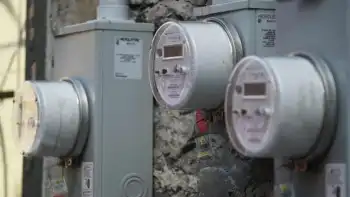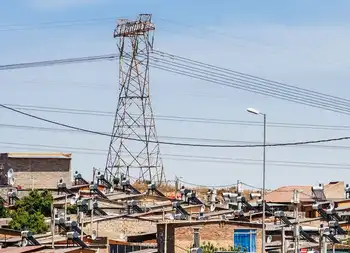U.S. Southwest Power Rises on Nuclear Outages; Northwest Price Drops
- July 30, 2003 -- Wholesale power prices in the U.S. Southwest gained for the first time this week following the shutdown of two nuclear reactors in Arizona. Electricity in the Northwest dropped for the third-straight day.
Wholesale electricity at the Mead substation, near Hoover Dam at the border of Nevada and Arizona, rose $2.32, or 4.2 percent, to $57.43 a megawatt-hour at 7:45 a.m. local time, according to Bloomberg data. At the Palo Verde switchyard in Arizona, the price gained $1.30, or 2.4 percent, to $56.06.
Arizona Public Service Co. shut down the 1,270-megawatt Palo Verde 2 nuclear plant in Wintersburg, Arizona, yesterday afternoon to repair a valve. The company expects to restart the unit this weekend, spokeswoman Sheri Foote said. Palo Verde 3, which also can produce 1,270 megawatts, has been off line since Monday for a seal repair.
"That's been helping to prop things up a little bit in the Southwest," said Jonathan Lindsey, an electricity broker at APB Energy in Louisville, Kentucky.
In Southern California, the price for electricity rose 30 cents, or 0.6 percent, to $52.13 a megawatt-hour. In the Four Corners region, where Colorado, New Mexico, Arizona and Utah meet, the price gained $2.25, or 4.2 percent, to $55.50. Four Corners power traded as high as $55.75 a megawatt-hour this morning on the Bloomberg PowerMatch trading system.
One megawatt-hour can power 800 typical U.S. homes for an hour, according to the U.S. Energy Department.
Demand for air conditioning will be 5 percent above normal tomorrow in the Southwest, according to Weather Derivatives. In Reno, Nevada, demand will be more than double the average, the forecaster said.
At Washington's Mid-Columbia trading point, a benchmark for the Northwest, wholesale power dropped $1.89, or 3.8 percent, to $48.25 a megawatt-hour. The price has fallen 6.9 percent in three trading sessions.
Related News

Electricity Market Headed for a Reshuffle as Province Vows Overhaul
ALBERTA - Alberta's electricity market is on the precipice of a significant transformation. The province, long reliant on fossil fuels for power generation, has committed to a major overhaul by 2027. This ambitious plan promises to shake up the current system, but industry players are wary of a lengthy period of uncertainty that could stifle much-needed investment in the sector.
The impetus for change stems from a confluence of factors. Soaring energy bills for consumers, coupled with concerns about Alberta's environmental footprint, have pressured the government to seek a more sustainable and cost-effective electricity system. The current market, heavily influenced…




